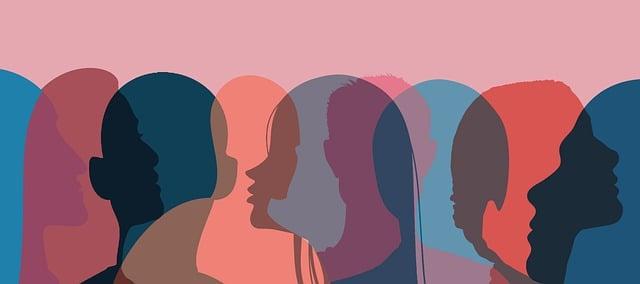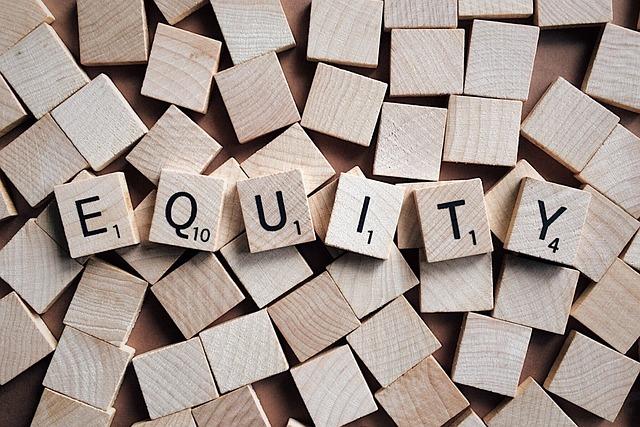In the vibrant tapestry of Pakistan’s society, education serves as a thread that weaves together individual aspirations, communal progress, and national identity. Yet, this essential element of social development is unevenly accessed, particularly through the lens of gender inequality. Despite advancements in literacy rates and increased enrollment figures, the shadows of gender disparity loom large, casting a pall over the educational landscape. For many girls, the dream of receiving an education remains just that—a dream, hindered by cultural norms, economic barriers, and systemic biases that perpetuate a cycle of inequality. This article delves into the multifaceted impacts of gender inequality on education in Pakistan, exploring not only the statistics but also the stories behind them. By examining the interplay between gender, education, and societal progress, we aim to illuminate the pathways toward a more equitable future for all members of society, where every child’s access to education is not determined by their gender, but by their potential.
Exploring the Disparities: Gender Inequality and Access to Education in Pakistan
In Pakistan, the landscape of education is starkly divided along gender lines, revealing how entrenched societal norms shape access and opportunities. Cultural barriers, such as early marriages and traditional beliefs about women’s roles, often impede girls from pursuing formal education. Economic factors further exacerbate this issue, as families prioritize the education of boys over girls due to limited resources. Consequently, data indicates that approximately 60% of girls in rural areas remain out of school compared to just 25% of boys, highlighting a significant gap. The repercussions of this disparity extend beyond individual aspirations, affecting community development and national progress, as the workforce is deprived of the talents and skills that educated women could contribute.
To illustrate the impact of gender inequality on educational attainment, it is essential to consider various dimensions. Not only does this disparity hinder personal growth, but it also perpetuates a cycle of poverty and limited socioeconomic mobility. Key factors that influence this dynamic include:
- Accessibility: Many rural schools lack basic facilities, making it difficult for girls to attend.
- Safety concerns: Inadequate security measures often deter families from sending girls to school.
- Parental attitudes: Parents’ perceptions of the value of education for girls play a crucial role.
In addressing gender inequality, targeted interventions that focus on community awareness and support for girls’ education are critical. The government, along with non-governmental organizations, must collaborate to implement policies that foster an inclusive educational environment. Initiatives such as scholarships for female students and creating safe transportation to schools can help bridge this divide, ultimately leading to a more equitable and educated society.

Barriers to Learning: Cultural, Economic, and Institutional Challenges for Girls
Numerous factors impede the educational advancement of girls in Pakistan, shaped significantly by cultural norms that prioritize male education over female learning. Traditional beliefs often dictate that a girl’s primary role is within the household, thus limiting her access to schooling. In many regions, early marriage is prevalent, cutting short a girl’s educational journey and reinforcing a cycle of dependence. Societal attitudes that view girls’ education as unnecessary further exacerbate this issue, leading to lower enrollment and retention rates in schools, particularly in rural areas. Other cultural barriers include:
- Negative stigma associated with female education
- Limited availability of female educators
- Reluctance of families to invest in girls’ education
Economic challenges compound these cultural barriers, as many families struggle with limited resources, prioritizing immediate needs over long-term educational investments. School-related costs, such as uniforms and supplies, often push families to opt for a boy’s education instead. Additionally, the lack of economic opportunities for women in the workforce perpetuates the perception that investing in girls’ education yields minimal returns. Institutional challenges include:
- Insufficient school infrastructure, particularly in rural areas
- Inadequate governmental policies addressing gender disparity
- Corruption and misallocation of educational resources
These intertwined barriers create a formidable landscape that hinders the pursuit of education for girls, reinforcing cycles of gender inequality and poverty within the broader societal context.

Transformative Solutions: Strategies to Enhance Educational Opportunities for Women
Addressing the barriers women face in accessing education requires a multifaceted approach that encompasses community engagement, policy reform, and innovative learning environments. Engaging local communities through awareness programs can dismantle ingrained cultural stereotypes that prioritize male education over female. Workshops and seminars aimed at parents can elucidate the long-term benefits of educating girls, fostering a collective mindset that values women’s educational opportunities. Moreover, partnerships with local organizations can amplify outreach efforts, ensuring that more girls are enrolled and retained in schools.
Additionally, implementing flexible learning models and scholarship programs specifically aimed at women and girls can significantly enhance their educational prospects. Innovative strategies such as online courses offer an alternative modality for women who may have restrictions on physical attendance. Financial incentives, including scholarships and stipends for families, help alleviate the economic burden and motivate the investment in a girl’s education. Consider the following table illustrating the impact of these initiatives:
| Initiative | Impact |
|---|---|
| Community Workshops | Increased enrollment rates by 30% |
| Flexible Learning Models | Retention rate improved by 45% |
| Scholarship Programs | Reduced dropout rate by 50% |

Empowering the Future: The Role of Community and Policy in Achieving Gender Equity in Education
In the intricate fabric of Pakistan’s society, gender inequality manifests not just as a social injustice but as a formidable barrier to educational progress. While the nation has made strides in improving access to education, entrenched cultural norms often dictate that girls are relegated to domestic duties, limiting their educational opportunities. Consequently, the impacts of such inequality are far-reaching:
- Low enrolment rates: Many girls are systematically excluded from schools, resulting in diminished literacy levels.
- High dropout rates: Fear of violence or cultural stigma can lead to early school leaving for many girls.
- Reduced economic advancement: A lack of education restricts women’s employment opportunities and limits their contributions to the economy.
Addressing these disparities requires a concerted effort from both communities and policymakers. Community engagement plays a pivotal role in reshaping perceptions around gender and education. When local leaders advocate for the importance of educating girls, families are more likely to support enrollment. Simultaneously, systematic policy reforms must focus on practical solutions:
- Incentivizing education: Offering financial assistance or scholarships can encourage families to prioritize girls’ education.
- Creating safe learning environments: Ensuring schools are safe and accessible will encourage higher attendance.
- Implementing educational campaigns: Raising awareness about the benefits of gender equity in education can shift cultural attitudes.
The Way Forward
As we draw the curtains on our exploration of gender inequality’s impacts on education in Pakistan’s society, it becomes clear that the journey toward equitable education is both intricate and essential. The gaps that persist in educational access and resources not only hinder the potential of individuals but also stifle the growth of the nation as a whole. Each statistic tells a story, each barrier reflects deeply rooted cultural norms, and each challenge presents an opportunity for dialogue and change.
Yet, amidst the daunting landscape of inequality, there lies a wellspring of hope. Voices advocating for change are amplifying, and efforts to dismantle these barriers are gaining momentum. The future of education in Pakistan holds the promise of inclusivity and empowerment, where every girl and boy can cultivate their potential without the constraints of gender.
As we look towards a future where education is a bridge rather than a barrier, it is imperative for us—educators, policymakers, and community members—to unite our efforts. By fostering an environment that cherishes learning for all, we can transform the educational landscape and, in turn, enrich the tapestry of society itself. Ultimately, the path forward begins with recognizing the inherent value in every individual, for it is through their education that a brighter tomorrow will flourish.



